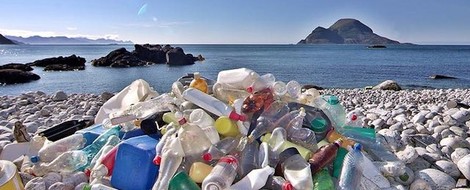Your podcast discovery platform
Curious minds select the most fascinating podcasts from around the world. Discover hand-piqd audio recommendations on your favorite topics.

piqer for: Global finds Doing Good
After ten years working in television news in Washington, DC, Geri quit the business to start a family and in 1997 founded GoodNewsNetwork.org, which quickly became the #1 site on Google for "good news". For more than 20 years, GNN.org has delivered positive news and inspiring stories from around the world as an antidote to the barrage of negativity in mainstream media. Featured on CBS News, BBC, Rolling Stone magazine, and NPR's All Things Considered, Geri was dubbed “The Good News Guru” by the Washington Post. From Health news to Heroes, World news to Animal rescues—and our new ‘Good Talks’ page, which aggregates the best motivational podcasts, GNN provides the ultimate grab bag of GOOD, with its daily dose of optimism and hope.
A Town In Cornwall Became Britain's First Ever Plastic-Free Community
The coastal town of Penzance united against the plastic pollution that is a danger to every sea creature they so treasure—not just single-use bags, but wrappers, cups, take out trays, forks, and straws.
Everyone got involved, from local schools to more than 70 businesses and multiple nonprofits. Now Penzance has become the catalyst for more than 330 communities all over the country to follow the town’s lead. So far, 29 coastal villages have achieved the status of "plastic-free".
Almost without exception, residents and business owners cite one reason for the town’s fairly sudden unity around the plastic problem: Blue Planet II. By coincidence, the shocking final episode of the BBC documentary series, which showed albatross parents feeding their chicks plastic, aired last December, days before Penzance won its status. “We were already working on it and getting a phenomenal response, but I think Blue Planet really widened the awareness and made people want to do something,” Yates says.
To combat the higher cost of doing business without plastic, businesses are rallying together to form a bulk-purchasing entity to get cheaper prices on bio-degradable alternatives. And some believe that pressure applied up the supply chain could force large manufacturers to package their products, like shampoo, in a more responsible way.
Marine life populations across the globe have these heroes in their corner and more are coming to their rescue.
